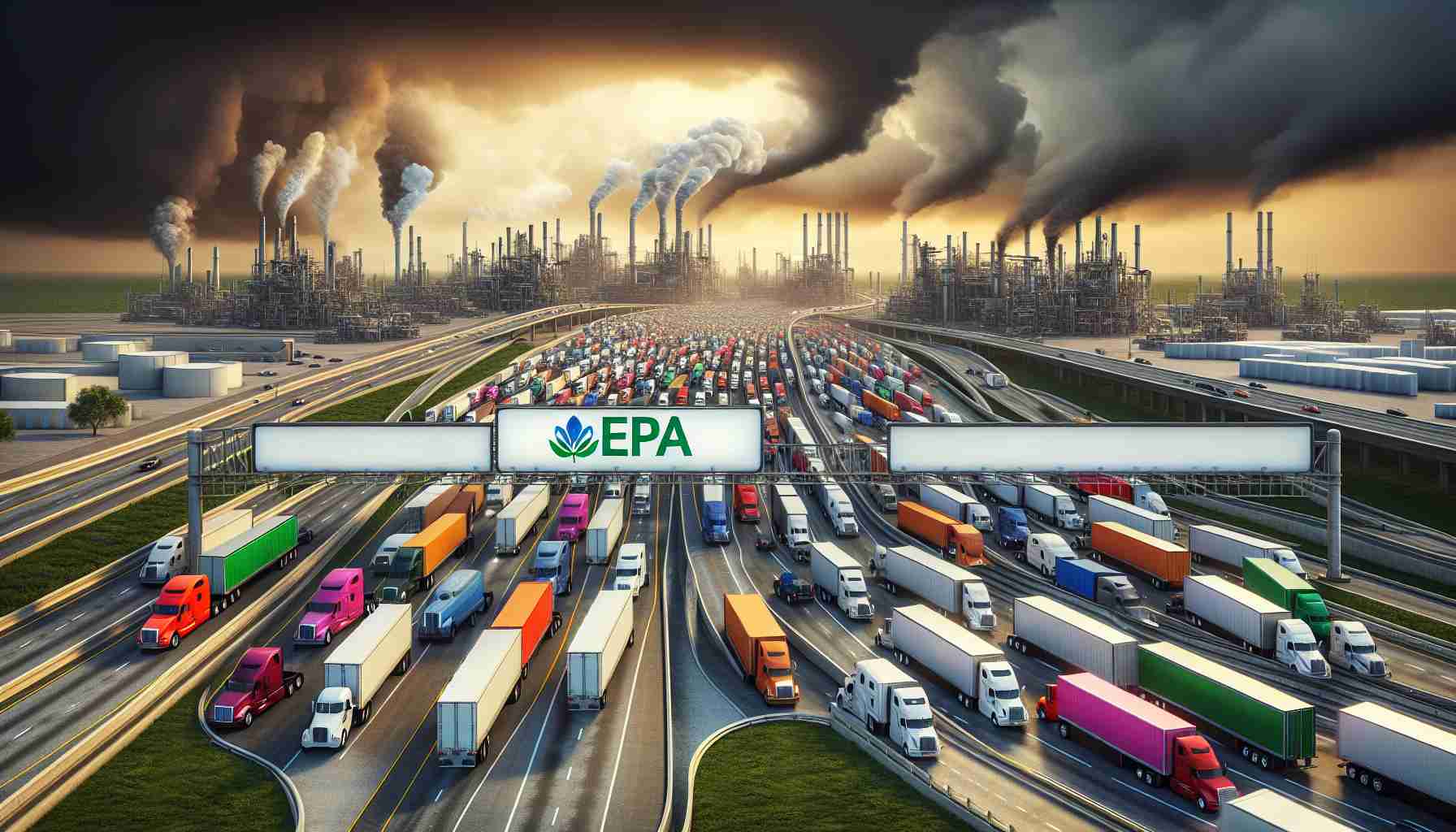A coalition of 24 states and several economic groups is challenging the Environmental Protection Agency (EPA) in federal court over new vehicle emission standards. The lawsuit claims that the EPA’s mandate for heavy-duty trucks to transition to electric vehicles by 2032 is not only legally shaky but could also create significant industry disruptions.
Filed with the U.S. Court of Appeals for the D.C. Circuit, the case argues against the EPA’s “Greenhouse Gas Emissions Standards for Heavy-Duty Vehicles-Phase 3.” These standards require a radical increase in the production of electric trucks, propelling them from nearly nonexistent numbers today to 45% of the market in less than a decade.
The document highlights a variety of sectors likely to be impacted. It asserts that truck manufacturers, fuel suppliers, the biofuel industry, and even farmers could face immense logistical hurdles and financial burdens. The plaintiffs insist that the EPA has overstepped its authority by implementing such sweeping changes without explicit congressional approval.
Nebraska leads the 24-state coalition, including diverse participants like fuel industry representatives and the Arizona state Senate. The appeal was initially filed in May and questions the EPA’s independent move to impose these emission standards.
The coalition also criticized the economic implications of the rule, claiming it could cost manufacturers over $20 billion, potentially soaring to $50 billion without certain cost-offsets. They warn these expenses will inevitably trickle down to businesses and consumers, and further argue that electric trucks have limitations compared to traditional vehicles, such as shorter ranges and longer refueling times.
The Electric Truck Transition: More Than Just an Environmental Effort?
The recent legal battle against the Environmental Protection Agency’s (EPA) mandate for the electrification of heavy-duty vehicles reveals critical complexities that extend beyond environmental considerations. This conflict highlights intricate issues encompassing economic, technological, and regional implications that may reshape societies and businesses globally.
What are the Stakes for Consumers and Businesses?
While the primary discourse centers on whether the mandate oversteps legal bounds, a significant portion of the debate is rooted in its potential economic impact. An essential question arises: How will this transition affect the market and everyday lives of people?
For businesses, particularly those reliant on logistics, the transition could lead to additional costs. Though the production of electric trucks might spur innovation within the automotive industry, companies may face increased expenses associated with reconfiguring fleets, investing in new infrastructure, and adapting to battery technology. Consumers could see an increase in the price of goods, as companies will likely pass on the costs of these adjustments.
Interestingly, organizations focused on renewable energy and sustainability herald this move as a necessary step toward reducing carbon emissions. However, others argue that without a corresponding development in battery technology and charging infrastructure, the intended benefits may be stunted. Critics highlight that electric trucks currently have limitations, such as shorter driving ranges and longer charging times compared to diesel counterparts.
Is There Economic Inequality at Play?
One of the lesser-discussed controversies involves the regional disparities that such regulations may exacerbate. States heavily dependent on traditional automotive manufacturing or fossil fuel industries might experience economic strain, potentially increasing unemployment rates in sectors ill-equipped to transition swiftly to new green technologies.
However, states and regions that have invested in renewable technologies may find themselves at a significant advantage, potentially leading to an uneven economic landscape across the country. This regional economic inequality raises questions about federal oversight and support for regions adversely affected by the transition.
The Future of Biofuels: A Missed Opportunity or a Necessary Step?
Another curious aspect involves the potential impact on the biofuel industry. Some experts argue that biofuels could serve as an interim solution, providing a more feasible transition toward environmentally-friendly practices. Despite their potential, the EPA’s current focus might inadvertently sideline the biofuel sector, overlooking opportunities for a blended approach to emissions reduction.
What Are the Broader Global Implications?
Globally, the implications of this rule are significant. As the U.S. moves toward stricter emissions standards, other countries may follow, potentially leading to a more unified international stance on vehicular emissions. However, nations particularly reliant on fossil fuels or those without the necessary infrastructure to support electric vehicles might find themselves at odds with this rapid transition.
Technology and Innovation: Are We Ready?
Lastly, this transition raises a critical inquiry: Is the technology ready for such a swift change? The current state of battery technology poses challenges regarding efficiency and sustainability. Further innovation is needed to enhance battery life, reduce costs, and improve the environmental footprint of battery production and disposal.
In exploring these issues, it’s essential to understand that while the quest for a cleaner future is positive, the path there presents numerous hurdles requiring careful, equitable planning and robust technological advancement.
For ongoing updates and insights into environmental policy and automotive markets, visit EPA and Automotive News.







